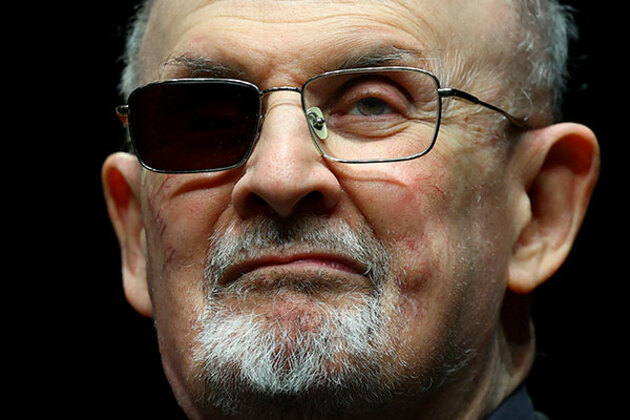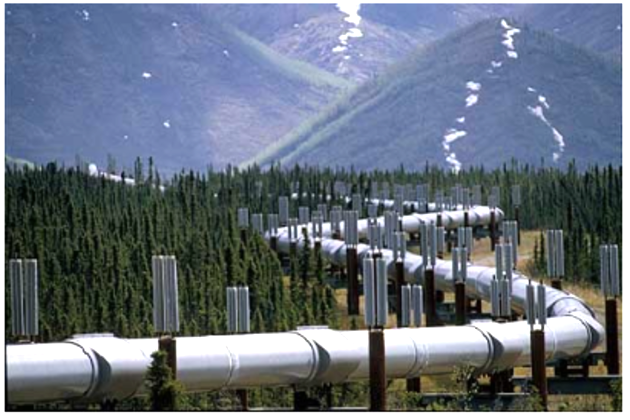The US has the power to switch off the UK's nuclear subs - a big problem as Donald Trump becomes an unreliable partner
The Conversation
27 Mar 2025, 17:08 GMT+10

Prime Minister Keir Starmer recently boarded one of the UK's four nuclear-armed submarines for a photo call as part of his attempts to demonstrate the UK's defence capabilities as tensions with Russia continue.
However, Starmer faces a problem. The submarine, and the rest of the UK's nuclear fleet, is heavily reliant on the US as an operating partner. And at a time when the US becomes an increasingly unreliable partner under the leadership of an entirely transactional president, this is not ideal. The US can, if it chooses, effectively switch off the UK's nuclear deterrent.
British and US nuclear history is irrevocably interwoven. The US and UK cooperated on the Manhattan project, under the 1943 Quebec agreements and the 1944 Hyde Park aide memoire. This work generated the world's first nuclear weapons, which were deployed on Hiroshima and Nagasaki in 1945.
It also led to the first rupture. In 1946, the US classified UK citizens as "foreign" and prevented them from engaging in secret nuclear work. Collaboration with the UK immediately ceased.
The UK decided to develop its own arsenal of nuclear weapons. The successful detonation of the "Grapple Y" hydrogen bomb in April 1958 cemented its position as a thermonuclear power.
In the meantime, however, Russia's launch of the Sputnik satellite in 1957 had demonstrated the lethal reach of Soviet nuclear technology. This brought the US and UK back together as nuclear partners.
Want more politics coverage from academic experts? Every week, we bring you informed analysis of developments in government and fact check the claims being made.
Sign up for our weekly politics newsletter, delivered every Friday.
Talks on how to counter the Russian threat became the foundation of an atomic partnership that endures to the present day. This mutual defence agreement, signed in 1958, has provided the UK with affordable access to the latest nuclear technology and a reliable western ally. The treaty has been amended and adapted over time to reflect changes in the US-UK working relationship and the two are now so entangled that it is very hard to leave the co-dependent relationship.
Both sides have benefited from security and protection, especially during the cold war. However, Trump's new "special relationship" with Russia's Vladimir Putin has reconfigured the global order of geopolitics.
Serious concerns are now being raised about the UK's nuclear capacity, given the unpredictability and potential unreliability of the new US administration. Trump could ignore or threaten to terminate the agreement in a show of power or contempt.
The UK's Trident nuclear deterrence programme consists of four Vanguard nuclear-powered and armed submarines. The UK has some autonomy, as it is operationally independent and controls the decision to launch.
However, it remains dependent on the US because the nuclear technologies at the heart of the Trident system are US designed and leased by Lockheed Martin - and there is no suitable alternative. The Trident system therefore relies on the US for support and maintenance.
The UK is currently in the process of upgrading the current system. But its options seem limited. If the US were to renege on its commitments, the UK would either have to produce its own weapons domestically, collaborate with France or Europe or disarm. Each scenario creates new issues for the UK. Manufacturing nuclear weapons from scratch in the UK, for example, would be a costly and protracted activity.
Technical collaboration with France seems the most plausible back-up option at the moment. The two countries already have a nuclear collaboration treaty in place. France has taken a similar submarine-based approach to deterrence as the UK and French president Emmanuel Macron has suggested its deterrent could be used to protect other European countries. Another alternative would be to spread the cost across Europe and create a European deterrence - but both strategies just re-embed the UK's current nuclear reliance.
While these weapons may deter a hostile nuclear strike, they have failed to prevent broader acts of aggression. Nuclear weapons have not been used in warfare for 80 years. Perhaps it is time to completely and permanently unshackle the UK from nuclear deterrence, and consider alternative forms of defence.
The UK's nuclear arsenal is expensive to maintain. The cost of replacing Trident is Pound 205 billion. In 2023, the Ministry of Defence reported that the anticipated costs for supporting the nuclear deterrent would exceed its budget by Pound 7.9 billion over the next ten years. This funding could be channelled into more pressing security threats, such as cybersecurity, terrorism or climate change.
Nuclear weapons will become strategically redundant if the UK cannot act independently. As Nato and the US dominate the global nuclear stage, the UK's capacity to respond has become contested. The time has come to decide whether the US is really our friend - or a new foe.
 Share
Share
 Tweet
Tweet
 Share
Share
 Flip
Flip
 Email
Email
Watch latest videos
Subscribe and Follow
Get a daily dose of Bristol Star news through our daily email, its complimentary and keeps you fully up to date with world and business news as well.
News RELEASES
Publish news of your business, community or sports group, personnel appointments, major event and more by submitting a news release to Bristol Star.
More InformationUnited Kingdom
SectionStories set in Chennai, Mumbai part of Salman Rushdie's new fiction since his stabbing
New Delhi [India], March 27 (ANI): Indian-born British and American novelist Salman Rushdie's new collection of stories is set to be...
Economic Watch: Trump's sweeping auto tariffs trigger strong global backlash
People test-drive a vehicle during a media preview of the 2024 Los Angeles Auto Show in Los Angeles, California, the United States,...
African state tightens entry rules for US citizens
Washington has said that from April 1, its passport holders will no longer be able to visit Namibia without obtaining visa US nationals...
Inspired by India, Pret A Manger unveils its first-ever full-service dine-in store globally
Pune (Maharashtra) [India], March 27 (ANI): There's good news for all food lovers out there in Pune as Pret A Manger has launched its...
Melsonby hoard: iron-age Yorkshire discovery reveals ancient Britons' connections with Europe
The Melsonby hoard is a remarkable collection of more than 800 iron-age metal artefacts, which was found in a field near Melsonby,...
The US has the power to switch off the UK's nuclear subs - a big problem as Donald Trump becomes an unreliable partner
Prime Minister Keir Starmer recently boarded one of the UK's four nuclear-armed submarines for a photo call as part of his attempts...
International
SectionFlorida City to train local police for immigration enforcement
WEST PALM BEACH, Florida: City officials in Fort Myers, Florida, voted last week to approve a new agreement allowing local police to...
US unveils plan to modernize air traffic control amid safety concerns
WASHINGTON, D.C.: With flight delays rising and aviation safety under scrutiny, the U.S. government is preparing a sweeping modernization...
NTSB calls for urgent safety checks on 68 US bridges, including icons
WASHINGTON, D.C.: The U.S. National Transportation Safety Board (NTSB) has called for urgent safety checks on 68 bridges, including...
US expands oil, gas leasing and eases Alaska energy restrictions
WASHINGTON, D.C.: U.S. Interior Secretary Doug Burgum has announced plans to open more land for oil and gas drilling in Alaska and...
Lawmakers push for fewer military flights in Washington D.C. area
WASHINGTON, D.C.: Ten Democratic lawmakers in the U.S. House of Representatives have asked the Pentagon to reduce military training...
Delta crash-landing probe finds dangerous descent before touchdown
TORONTO, Canada: An initial investigation into last month's dramatic Delta Air Lines crash-landing in Toronto has revealed that the...












